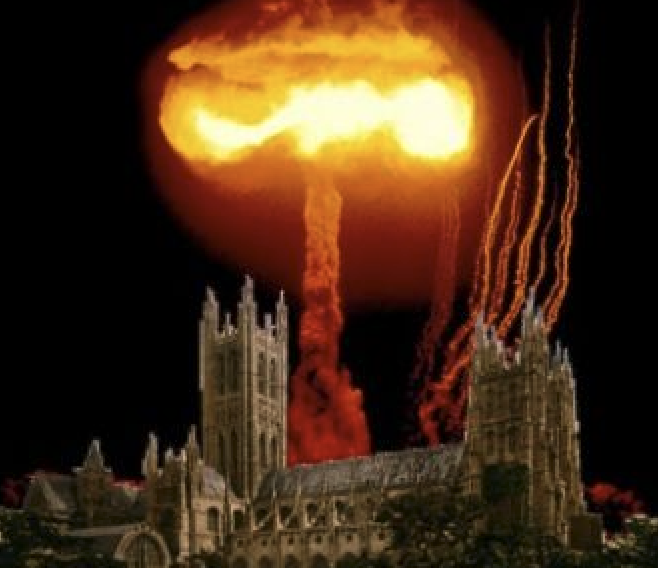When evangelical leaders look at the United States of America, they do not see a country defined by the familiar Gallup Poll statistic stating that 92 percent of its citizens profess some kind of belief in God.
Nor do they see a land that is only 1.6 percent atheist and 2.4 percent agnostic, according to the U.S. Religious Landscape Survey by the Pew Forum on Religion & Public Life. They do not see a land in which another 12.1 percent of the people do not embrace any one religion "in particular," but insist that "spirituality" plays some role in their lives.
In other words, they do not see a remarkably, if somewhat vaguely, religious nation -- especially in comparison with other modern industrialized lands.
No, when elite evangelicals see America today the word that comes to mind is "secular."
In fact, 92 percent of evangelical leaders from the United States who took part in a new Pew Forum survey said they are convinced that secularism is a "major threat" to the health of evangelical Christianity in their land, a threat even greater than materialism, consumerism and the rising tide of sex and violence in popular culture.
In a related question, a majority of U.S. evangelical leaders -- 82 percent -- said they are convinced that their churches are currently losing clout in American life.
In this study, researchers surveyed nearly 2,200 evangelical leaders from around the world who were invited to participate in last year's Lausanne Congress on World Evangelization in Cape Town, South Africa.
"This rising fear of secularism" among top American evangelicals "really surprised us, especially when you compared their feelings to the more optimistic attitudes among evangelicals in other parts the world," noted John C. Green of the University of Akron, a senior Pew Forum research advisor.
So what is happening? For generations, he explained, evangelicals have "primarily been defined in terms of their conflicts with other religious groups, with other faiths. ... But now, it seems that they are increasingly starting to see themselves in terms of conflicts with those who are either indifferent to religion or who are openly hostile to traditional forms of religion."
Thus, it seemed that when these evangelical leaders used the term "secularism" they were not always referring to people and groups with no religious convictions at all. Instead, they were expressing their concerns about the rising numbers of people in America and around the world that simply do not practice any one form of faith, as traditionally defined.
"They don't seem to know what to call the unorthodox expressions of faith that you see among the so-called 'spiritual, but not religious' people," said Green. Thus, the frustrated evangelical leaders may be "lumping them all together under the term 'secularism.' "
In contrast to this surge of pessimism in North America, evangelicals from other parts of the world were more optimistic about the future. This was especially true among those from Africa, Asia, Latin America and the rest of the so-called "Global South." Other survey results included:
* While only 41 percent of northern leaders believed the state of evangelicalism would improve in the next five years, 71 percent of those in the Global South were convinced things would be "better than now" for their churches. In the Global North, 33 percent of those surveyed thought things would soon get worse.
* While in overwhelming agreement (96 percent) that "Christianity is the one, true faith," these evangelical leaders were somewhat divided on a key authority issue, with 50 percent saying the "Bible should be read literally, word for word" and 48 percent saying "not everything in the Bible should be taken literally."
* Not surprisingly, 90 percent of evangelicals from Muslim-majority nations said Islam poses a major threat to their future work, compared with 41 percent from those living elsewhere. However, survey participants from Muslim lands held more favorable views of Muslims and their faith than did evangelical leaders from other countries.
* The Lausanne Congress participants were convinced that evangelicals in the Global South currently have "too little influence" in the leadership of world Christianity. Researchers found it particularly interesting that leaders in the United States and other parts of the Global North were even more likely to hold this point of view -- 78 percent compared to 62 percent -- than their counterparts in the Global South.







